vaccines
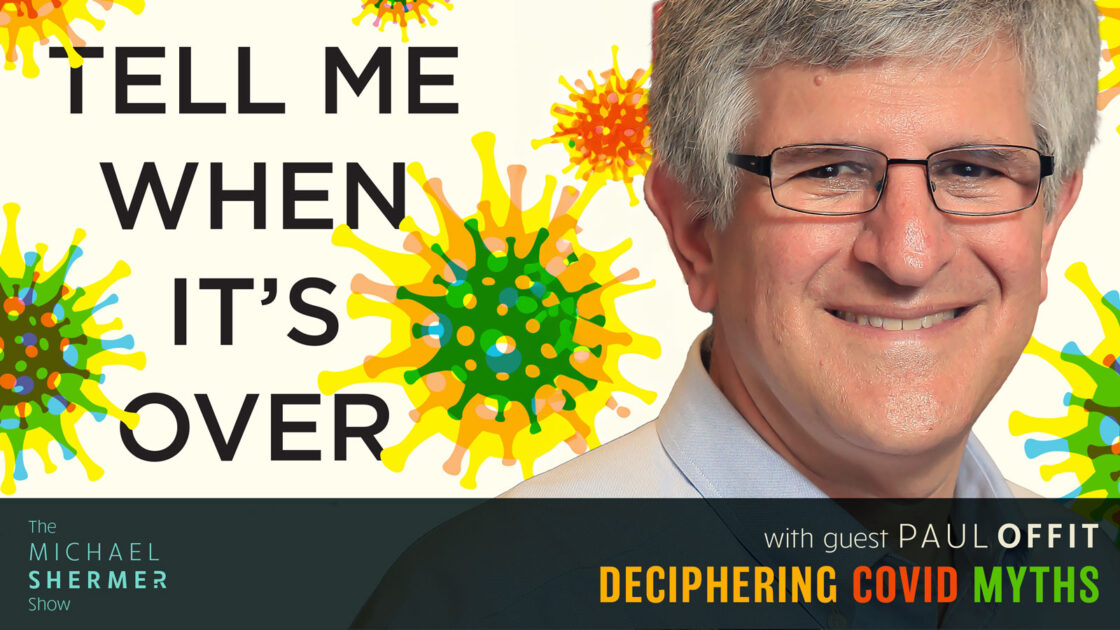
Shermer and Offit discuss: mRNA vaccines • science gone wrong or part of the long and risky history of medical innovation? • loss of trust in medical and scientific institutions • overall assessment of what went right and wrong • mandates vs. recommendations • economic costs • lab leak hypothesis vs. zoonomic hypothesis • debating anti-vaxxers • treatments • high risk vs. low risk groups • Robert Malone,Joe Rogan, RFKJ, Peter Hotez, Del Bigtree • Stanford professor Jay Bhattacharya censored for signing the…
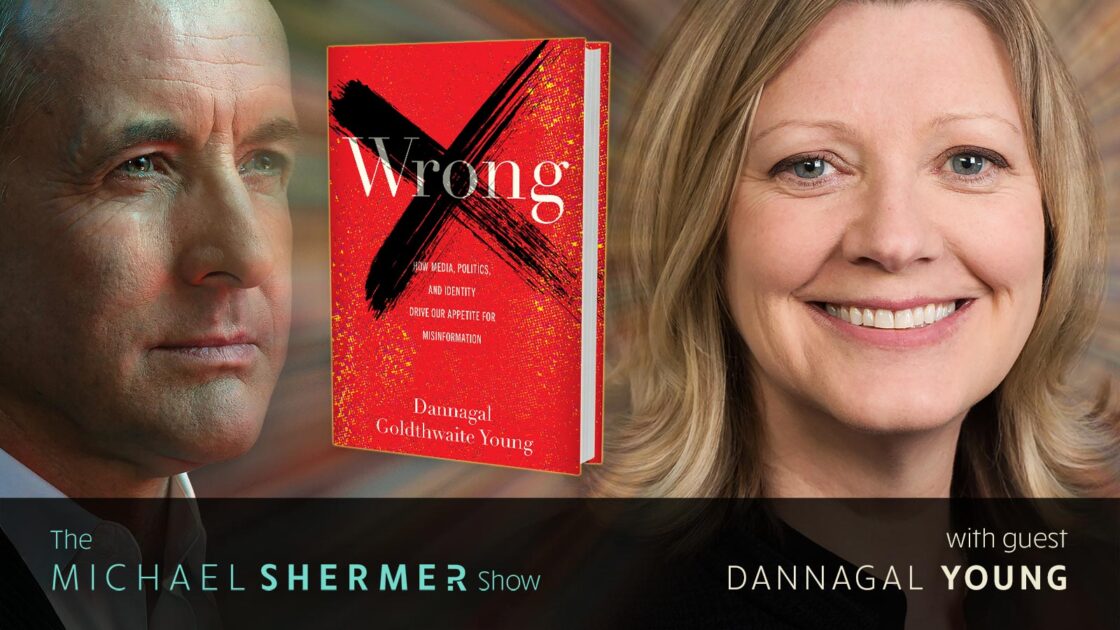
Shermer and Young discuss: how do you know if you are wrong, or that someone else is wrong • the evolution of reason: veridical perception or group identity? • the 3 “Cs” of our needs: comprehension, control, community • open-minded thinking • intellectual humility • political polarization • echo vs. identity chambers • social media • lies • disinformation • Donald Trump • democracy • science and morality • solutions to identity-driven wrongness.
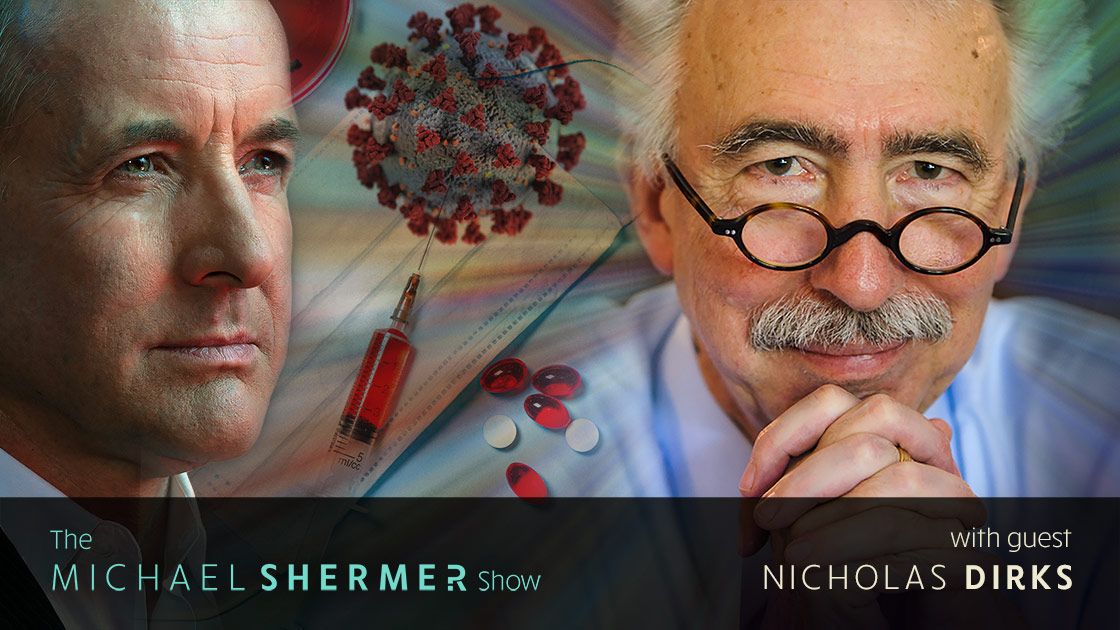
Shermer and Dirks discuss: vaccine hesitancy • why antibiotics do not generate the same distrust • vaccines and autism • COVID-19 and its differential effects on people • the lab-leak hypothesis vs. the zoonomic hypothesis for the origin of SARS CoV-2 • Anthony Fauci and the CDC • climate denial • how trust in science has changed over the past century • the politicization of science • how to talk to someone who doesn’t trust science or scientists.
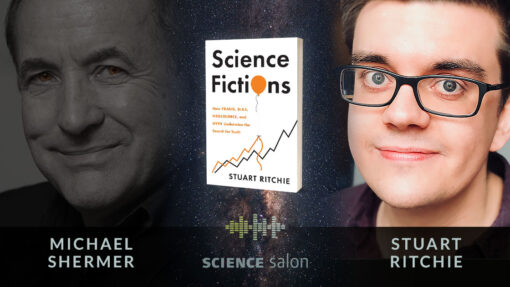
Science is how we understand the world. Yet failures in peer review and mistakes in statistics have rendered a shocking number of scientific studies useless — or, worse, badly misleading. Such errors have distorted our knowledge in fields as wide-ranging as medicine, physics, nutrition, education, genetics, economics, and the search for extraterrestrial life.
Dr. Michael Shermer considers the pitfalls of projecting the consequences of the pandemic for our future (the availability heuristic, the negativity bias, the difficulties of superforecasting, and the contingent nature of history). PLUS: In Science Salon # 131, Michael Shermer speaks with Stuart Ritchie his book Science Fictions: How Fraud, Bias, Negligence, and Hype Undermine the Search for Truth.
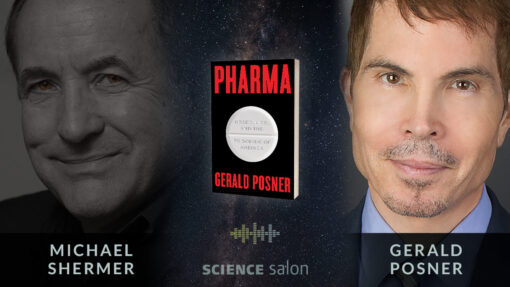
In Science Salon Podcast # 123, Michael Shermer and Gerald Posner discuss how Big Pharma conspires to hack FDA regulations, the Opioid crisis. addiction, greed, capitalism, drug patents, innovation, and the prospects for a COVID-19 vaccine.
Save 40% on new digital subscription via PocketMags.com, now thru July 25, 2020. PLUS, in Science Salon Podcast # 123, Michael Shermer and Gerald Posner discuss how Big Pharma conspires to hack FDA regulations, the Opioid crisis. addiction, greed, capitalism, drug patents, innovation, and the prospects for a COVID-19 vaccine.
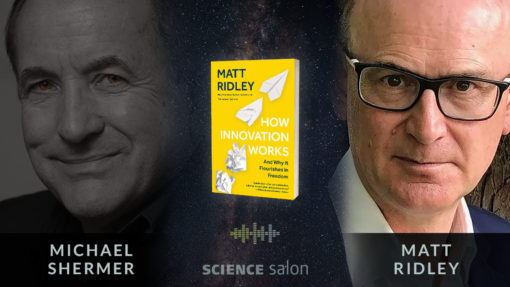
Innovation is the main event of the modern age, the reason we experience both dramatic improvements in our living standards and unsettling changes in our society. Matt Ridley argues that we need to think about innovation as an incremental, bottom-up, fortuitous process that happens to society as a direct result of the human habit of exchange, rather than an orderly, top-down process developing according to a plan.
In Science Salon # 117, Michael Shermer speaks with Matt Ridley about his book How Innovation Works: and Why It Flourishes in Freedom.














